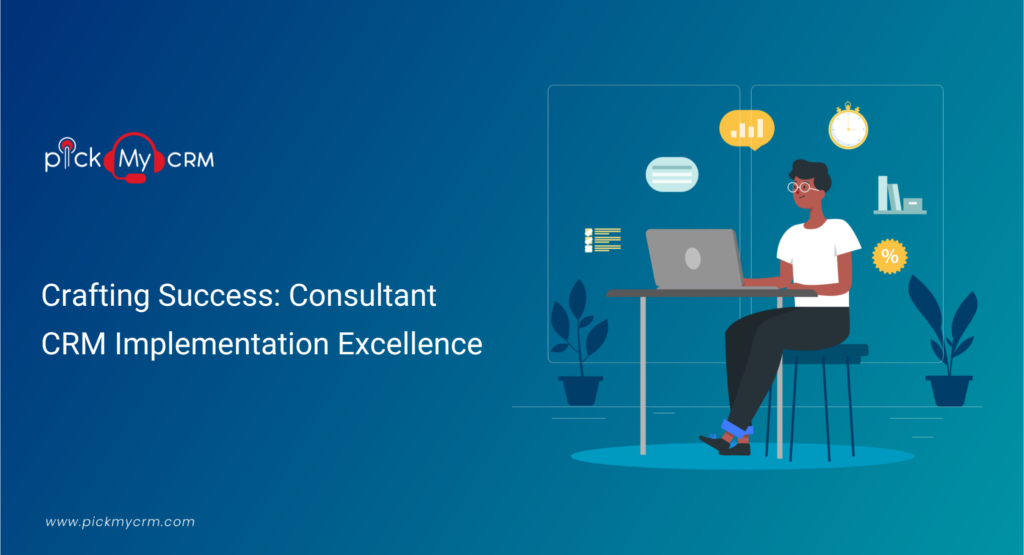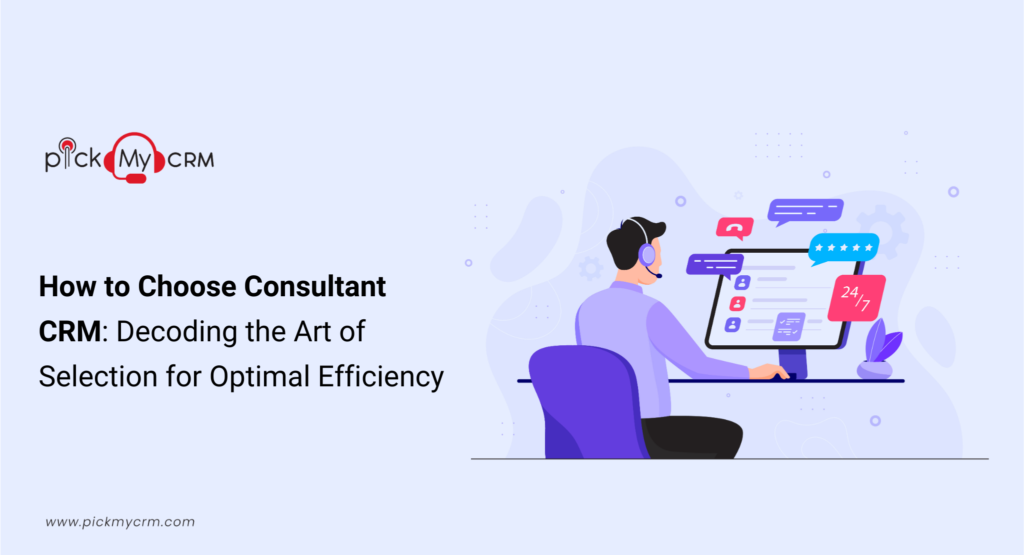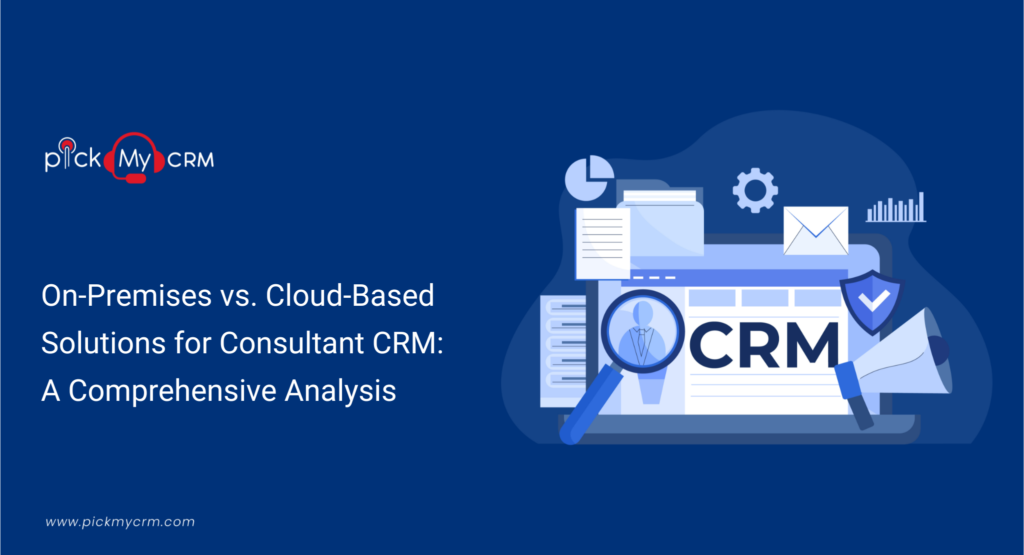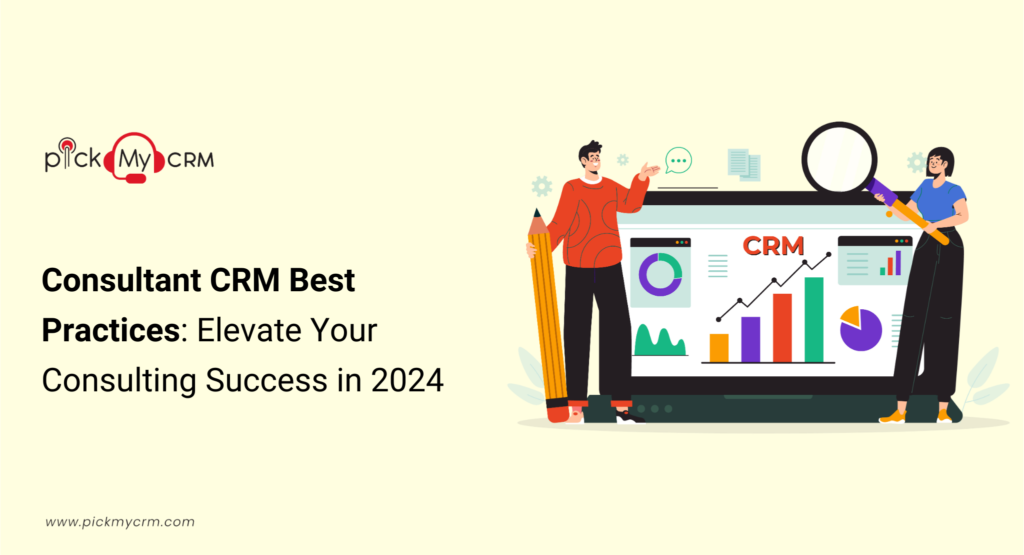Crafting Success: Consultant CRM Implementation Excellence

What is consultant CRM Implementation?
Consultant CRM Implementation involves CRM software and strategies in business processes. This customized implementation is Designed to optimize client interactions, streamline data management, and enhance communication, empowering consultants to provide personalized services, make informed data-driven decisions, and fortify client relationships.Steps to Successful Consultant CRM Implementation
Assess Business Needs
Begin by assessing your specific business needs and challenges. Identify areas where a CRM system can provide the most value, such as improving client relationship management, streamlining sales processes, or enhancing project management.Set Clear Goals and Objectives
Establish clear goals and objectives for the CRM implementation. These could include increasing client satisfaction, improving sales conversion rates, or enhancing team collaboration. Ensure that your goals align with your overall business strategy.Choose the Right CRM Solution
Thoroughly research and choose a CRM solution that suits your requirements. Key factors are scalability, customization options, integration capabilities, user-friendliness, and cost. Moreover, engaging key stakeholders in decision-making ensures their endorsement and dedication to the selected CRM solution.Grasping the Vision of the Client
Achieving successful CRM implementation requires consultants to understand the unique vision of the Client and goals through close collaboration, active listening, and alignment with business objectives. This immersive approach within the client environment provides valuable insights into upcoming challenges and opportunities.Crafting Consultant CRM for Business Transformation
CRM consultants specialize in creating custom solutions. They assess existing processes, data structures, and workflows to design a seamlessly integrated CRM system. Considering the client industry and unique needs, they construct a robust CRM framework that enhances efficiency, productivity, and customer satisfaction.Navigating the Technical Landscape
Embarking on CRM implementation can be daunting as businesses navigate complex technical terrain that often becomes overwhelming. Consultants bring their extensive knowledge of CRM software and platforms to simplify this process. They assist organizations in selecting the right CRM solution, ensuring compatibility, scalability, and robustness. Consultants also handle the intricate tasks of data migration, system integration, and customization, making the transition to the new CRM system a seamless and hassle-free experience.User Adoption and Empowerment
Achieving a prosperous CRM implementation extends beyond technology; it revolves around people. Consultants understand the importance of user adoption and change management. They design comprehensive training programs and conduct engaging workshops to empower end-users with the skills and confidence to leverage the CRM system effectively. Through ongoing support and communication, consultants foster a culture of CRM adoption, driving transformational change within the organization.Maximizing ROI
CRM consultants extend their support beyond implementation, continuously monitoring the performance and fine-tuning it to meet evolving business needs. Their focus extends beyond immediate results to long-term success, providing strategic guidance, recommending enhancements, and unlocking the full potential of the CRM system to maximize return on investment (ROI).Plan and Prepare
Construct an exhaustive implementation plan that Provides a detailed breakdown of tasks, timelines, and responsibilities. Define data migration strategies, system configurations, and any necessary customizations. Allocate resources and establish a project team to oversee the implementation process.Cleanse and Prepare Data
Before migrating data into the new CRM system, ensure data accuracy, consistency, and the absence of duplicates, organize and cleanse the data to avoid migration complications, and create a secure backup of the existing data for added protection.Customization and Configure
Tailor the CRM system to your consulting business by configuring fields, workflows, and automation rules to match your unique processes. Recent success stories in the consulting industry illustrate how CRM customization can significantly enhance efficiency. Configure user permissions and access levels to ensure data security and privacy.Provide Training and Support
Offer comprehensive training to users on how to effectively use the CRM system. Deliver workshops, furnish documentation, and extend practical hands-on support. Encourage user adoption and address any concerns or challenges along the way.Test and Refine
Conduct thorough testing to ensure that the CRM system functions as intended. Identify and address any issues (or) bugs during the testing phase. Continuously gather feedback from Users and make necessary refinements to optimize the system performance.Rollout and Deployment
Once you have faith in the CRM system functionality, strategize for a seamless rollout and deployment. Effectively communicate the advantages and modifications to stakeholders, offering essential support throughout the transition phase.Monitor, Evaluate, and Iterate
Continuously monitor the CRM system performance and evaluate its impact on your business. Measure metrics, Such as user adoption rates, client satisfaction levels, and sales performance. Use these insights to make iterative improvements and enhancements to maximize the CRM system value.Go-Live
The go-live phase marks the official launch of your CRM system. It involves deploying the system across your organization, making it accessible to users, and enabling them to start Utilizing its features. During this, a CRM implementation team works closely with your organization to ensure a smooth transition. They assist in data migration, system configuration, and user training to prepare your team for using the CRM system effectively.The Benefits of Consultant CRM Implementation
- Enhanced customer relationship management through centralized client information and personalized communication
- Streamlined sales processes with efficient lead tracking, qualification, and opportunity management
- Data analysis and reporting capabilities for informed decision-making and optimization of strategies
- Increased productivity and efficiency through automation of repetitive tasks and seamless communication
- Improved client satisfaction and retention through personalized experiences and proactive support
Indicators that You Require a Consultant CRM Implementation
- Scattered customer data across multiple systems or formats.
- Inefficient sales and marketing processes.
- Low customer satisfaction, retention, and declining engagement.
- Limited visibility into the sales pipeline.
- Data inconsistencies, duplication, and outdated information.
- Challenges in team collaboration and disjointed business processes.
- Concerns about data security, compliance, and data security concerns.
- Underutilization of CRM features and potential.
- Falling behind competitors and high customer turnover.
- An expanding customer base and the need for mobile CRM.



